#his relationship with simon really screwed up a lot of things: his self-esteem. his perception of his desires. and he was fully convinced
Explore tagged Tumblr posts
Text
Arthur finding love with Bull is not what I'd expected, but something that happened nonetheless and I am so glad it did. Like, for Arthur to be the headspace he is in now in Inquisition and beyond, it's a perfect match. Someone he doesn't have to be the Inquisitor with at all. There's no idolisation, no 'Your Worship', no 'my Lord', no 'Inquisitor'. He doesn't have to be the saint, the Herald, he doesn't have to be perfect and he doesn't have to hide his relationship, like he had to for so many years before.
He's found someone who loves him openly, who talks about how much he desires and cares for him publicly while still keeping things private when it matters. And Arthur in return can openly express that desire when he wants to, gets a thrill out of being able to love in public and knowing for the first time, him being in love isn't something that will be perceived as wrong and he simply doesn't care anymore if it causes a minor scandal.
I can just imagine how freeing it must be for Arthur, a Circle mage who had to love a templar in secret for 20 years, to finally be able to not hide that part of himself away like it's something shameful.
#harper.txt#his relationship with simon really screwed up a lot of things: his self-esteem. his perception of his desires. and he was fully convinced#- that that part of him (his capacity for sex and romantic love) died and simon took his broken heart with him when he abandoned arthur#simon when i get you simon (<- says the guy who has full control over simon's actions)#so for bull to come along and tell him how damned hot he is and to be very loud and public about them being together is a complete game -#changer! and sure it takes time for him to get comfortable with that sort of thing but once he is. he's a menace.#otp: arthuribull#oc: arthur
8 notes
·
View notes
Text
You Can(Not) UnGay Kaworu Nagisa - An Essay
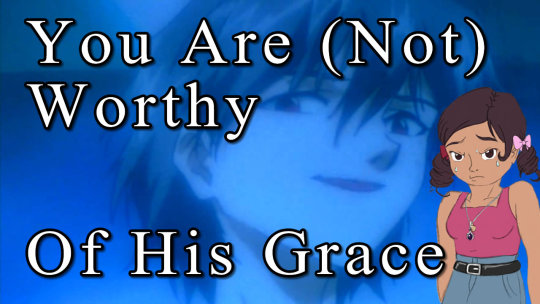
This is a text-version of my video-essay on the recent Netflix/Evangelion translation controversy. To see the video version, please click here!
I make no secret of the fact that the linguistics involved in Anime and Game translation are one of my primary fields of interest as a Japanologist. Compared to translation between Germanic and Romanic Languages, as the west is used to it, translating from Japanese to English is filled with a plethora of pitfalls, the likes of which can be very difficult to imagine unless you’re fluent in both languages.
It’s because of this that my interest in any given AniManga controversy immediately skyrockets as soon as the matter of translation issues is brought up. Which brings us to June 21st’s release of Netflix’ Redub of Studio Gainax’ internationally infamous existential creator meltdown disguised as a Mecha Anime, Neon Genesis Evangelion.
1.) Neon Genesis ADVangelion

For those among you who haven’t yet heard of this inherently controversial work – what rock do you live under and does it still have vacancies? In all seriousness though, enough videos attempting to summarize the plot of NGE exist on the internet to make giving the rundown here an exercise in redundancy. All you need to know is that the protagonist’ name is Shinji and that he’s a mental-wreck with Daddy Issues who pilots a giant cyborg infused with the soul of his dead Mom to fight surrealist alien abominations and gains an increasingly screwed up social life doing so, all while his already fragile psyche gradually declines to world-ending consequences. For far less fatalistic takes on some of these concepts, please see RahXephon and Tengen Toppa Gurren Lagann. Good? Good. Let’s move on.

The original ADV Films dub of Neon Genesis Evangelion and its sequels and spin-offs is… not really flawless, to say the least, but it did a good job in introducing the series to a western audience while staying entirely true to the themes and intentions of the original version. This is definitely at least partially thanks to the fact that director and auteur of the series, Hideaki Anno, personally oversaw the translation and dubbing process, and while the guy in all honesty doesn’t really know the first thing about voice acting – his performance as Jiro in The Wind Rises is one of the reasons it’s my least favorite Ghibli movie – what he does understand is his own work, and what it should convey to the audience in order to be authentic to his vision. So while I do have my issues with the ADV dub, such as poor audio-quality and hopeless cases of overacting caused by poor voice direction in certain parts, the translated script of the series was as stellar as could be expected from something created with the original author’s input, and to the very end of the original 26 episodes run, one can definitely feel the deep, emotional investment every single member of the English cast had in these characters and their journey. (I mean. Just listen to Spike Spencer’s secret rant in the end of the last episode. The dude clearly cares about what happens to Shinji.) In any case, this is probably one of the most influential, iconic dubs to all of the English-speaking Anime Fandom.
Then Netflix decided to license NGE. Not the ADV Dub. Just the show.
People were not happy.
2.) The Rebuild of Netflixgelion

Please do not mistake what I’m saying for pedantic. The iconic nature of the original ADV dub of NGE cannot be understated, and plays a huge role in the current lack of acceptance for the Redub, even though previous similar redubbing efforts, such as in the case of Bishoujo Senshi Sailor Moon, where welcomed by the community wholeheartedly. The new dub cast is absolutely stellar, including voice acting veterans such as Carrie Keranen and Erica Lindbeck, and Casey Mongillo’s amazing vocal range goes a long way to replicate and convey the emotional depth of Shinji Ikari in a way previously only seen in Megumi Ogata’s original Japanese performance.However, while the Netflix dub has a wonderful cast and voice direction, what it does not have is the original dub’s Hideaki Anno-approved script.
…Aaaaand, this is where the real troubles start.
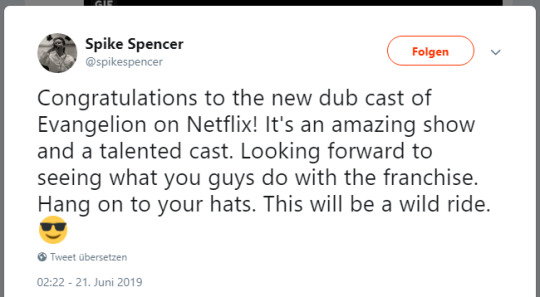
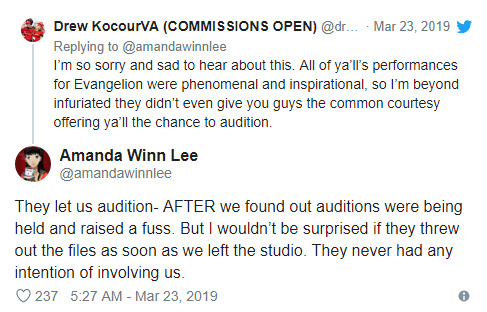
To be totally clear, the redub always meant trouble. The original voice cast were reportedly never given a real chance to reprise their roles- despite efforts made by the main trio, Spike Spencer, Amanda Winn Lee and Tifanny Grant to at least be given a chance to audition – which is a surefire recipe for upsetting a lot of fans. However, this is a problem that could have at least been partially smoothed over after allowing the performances of the new cast to shine in their own right. I mean, even if it is incredibly scummy to not even inform the old cast of the auditions for the redub, if the new version proves to contain superior performances and direction in comparison to the, honestly badly-aged ADV dub, then Netflix’s decision to make an entirely new dub is entirely understandable, right?
No such arguments can be applied to the retranslation of the show’s script.
3.) The End of Authorial Intent
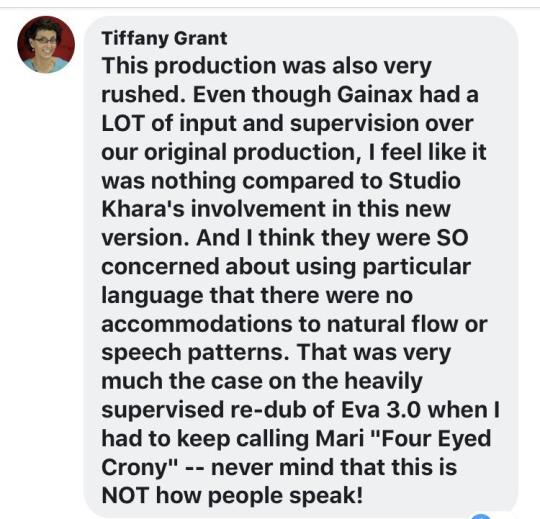
I haven’t rewatched the entire show in the new dub, just two key episodes. That said, I wouldn’t dream of calling the new script ‘bad’. It’s, for the most part, natural and faithful to the original Japanese source text in much the same way the ADV dub was, to the point that some stray lines received identical translation in both versions. What gives the new script away as entirely unrelated to that of the ADV dub, however, are some rather… baffling localization choices.
All of those decisions are rooted in the original Japanese script. They’re not incorrect translations. If the Japanese were to be your only point of reference, there would be no reason to complain about these choices.
But we do have a point of reference. The ADV script. Which was overseen and approved by Hideaki Anno. The original director.
In the making of this video, I have since learned that Anno’s animation company, Khara, was most likely involved in the translation of the script for the Redub. However, as I can’t find any evidence that he himself was involved, the point I am about to make still stands:
Back in the 90s, very shortly after the show concluded its original run, Anno personally signed off on every single choice the ADV dub made. The respective pronunciations of Nerv, Seele and Gehirn, calling the EVA pilots by the correct singular “Child”, rather than the awkward Engrish singular “Children” the original Japanese featured, and referring to the enemies consistently as Angels, even in parts where the original Japanese mixed up the terminology for the sake of a pun with Kaworu’s name.
So, all of the ADV localization changes are within the intent of the original author. They are part of how the show is meant to be consumed by a western audience. Not carrying over this terminology, despite it being faithful to the Japanese script, thus ironically makes the Netflix script LESS faithful to Anno’s authorial intent than the ADV dub. But those are only terminology changes, right? They’re not a big deal. They don’t alter the context of the narrative itself.
…
Kaworu Nagisa.
4.) Kaworu Nagisa

Remember how I mentioned that I only really watched two episodes of the Netflix dub all the way through so far? Well, one of those two episodes happens to be one of the series’ most infamous, right after the two-part finale: Episode 24. “Knockin’ on Heaven’s Door”, or “The Final Messenger” – Let’s not get hung up on which it is, Evangelion has ALWAYS been weird with titles.
This Episode introduces Kaworu Nagisa, the fifth of the EVA pilots and long-time fangirl-favorite for not-so-subtle reasons. Kaworu appears as Shinji is at his lowest point, our main protagonist’s already pretty much non-existent self-esteem in shambles. The two boys bond immediately over… the fact that Kaworu can sing ‘Ode to Joy’? Yeah, let’s go with that – And the majority of the episode consists of showcasing the growing relationship between Kaworu and Shinji, beginning with simple conversations, but quickly progressing into some more… serious territory.
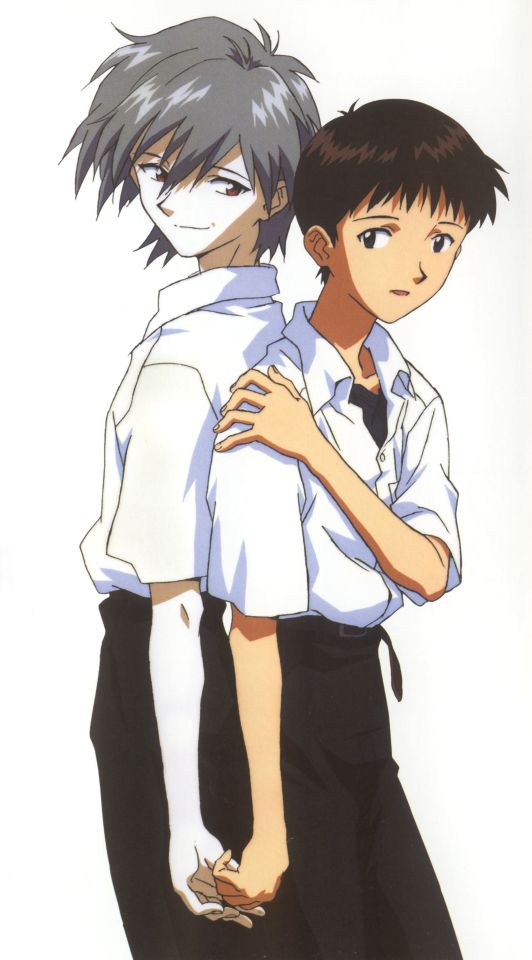
I won’t sugarcoat things, in terms of narrative structure, the episode is a mess, rushing from scene to scene with reckless abandon, attempting to successfully tell a story in under 25 minutes, that some Disney Movies don’t tell right in 90+ minutes. This is doubtlessly due to the overall mess that NGE’s production process had become at this point in its original run for reasons too complicated to talk about in this video, but let me assure you that there’s pretty solid evidence that Kaworu was definitely originally meant to appear for much more than a single episode. As it stands, however, he dies in the same episode he is introduced, begging Shinji to assist him in his suicide after revealing himself to him as the final Angel. His effect on Shinji, however, is profound and comparable to the effect Nia Teppelin of Tengen Toppa Gurren Lagann has on that show’s protagonist, Simon Giha. In that way, just as with Nia later, it is plain as day that Kaworu is intended to be one of Shinji’s love interests. And the episode is NOT subtle at all in portraying him as such.
A lot can be said about the exact nature of Kaworu’s affection for Shinji, from Kaworu clearly seeing Shinji as some sort of avatar for humanity as a whole on which he projects his admiration for the species, to Shinji seemingly falling victim to an idealized Oedipus Complex in regards to his perception of Kaworu, the fact remains that their interactions with one another in Episode 24 are in places obviously romantic to even sexual in not only the dialogue, but also the visuals. Even with Hideaki Anno’s profession that Shinji’s romantic feelings for Kaworu aren’t “carnal”, they’re still obviously there. Projected and skewed by their unusual psyches as aspects of it may be, the relationship between them is clearly portrayed in a way that transcends the platonic and becomes intimate more quickly than your seafood friends can start singing ‘kiss the guy’ on a romantic boat ride – It’s not subtext, you guys. Towards Shinji Ikari, Kaworu Nagisa acts and speaks quite openly like one would speak to a lover. And even if Kaworu and his ambiguous humanity are somehow not gay enough for you, well, resident violently blushing and stuttering smitten wreck Shinji Ikari will put your doubts to rest. The visual homosexual (homoromantic?) tension in these scenes is so tangible, you can cut it with a knife. The dialogue, at certain points, doesn’t even really matter. Kaworu could quite literally be reading off the grocery list, and these scenes would STILL be gay.
That doesn’t mean the dialogue is not important, and that one shouldn’t really, really pay attention to what’s on screen when translating.
5.) The Final Angel is in the Detail
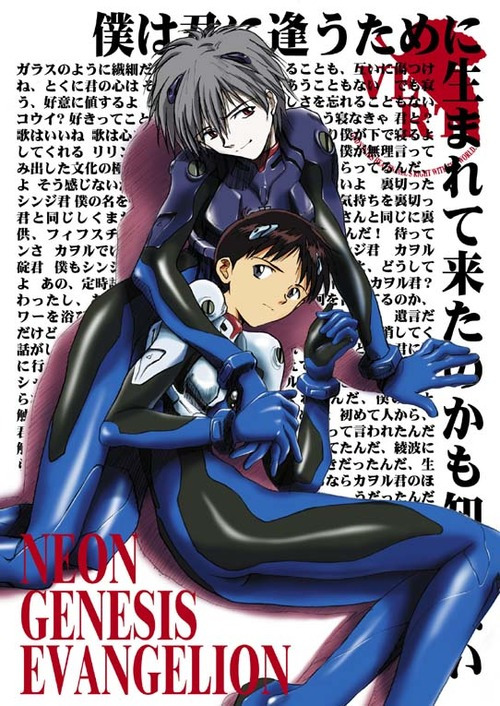
The translation of Kaworu’s words to Shinji in the Netflix dub is not wrong. But it ignores the context of the scene, as well as authorial intent. And that’s why I understand why people are angry at it.
The lines in question are these :
(Scene 1)
Kaworu: そう、好意に値することよ。
Shinji: 好意?
Kaworu:「好き」ってこと、さ
(Scene 2)
Shinji: カヲル君が「好きだ」って言ってくれたんだ。僕のこと。初めて…初めて人から「好きだ」って言われたんだ。
In the ADV dub, these lines were translated like this:
(Scene 1)
Kaworu: This is worth earning my empathy.
Shinji: Empathy?
Kaworu: I’m saying “I love you.”
(Scene 2)
Shinji: Kaworu said that he loved me. I’ve never... felt such kindness before.
In the Netflix dub, however, they were translated like this:
(Scene 1)
Kaworu: Yes, you’re worthy of my grace.
Shinji: Your grace?
Kaworu: I’m saying “I like you.”
(Scene 2)
Shinji: Kaworu said I was worthy of his grace. That was the first time... someone told me they liked me.
Which one of these is right? The fact is… both are.
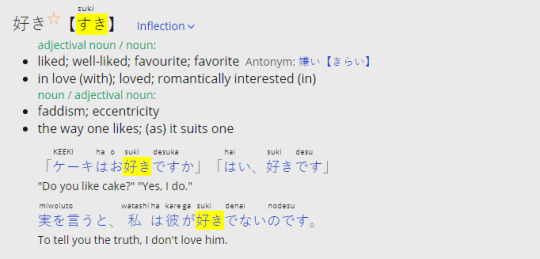
The Japanese term “ 好き ” doesn’t really have a direct equivalent in English. It holds a connotation that is meant to convey very personal, but broadly defined affection. It doesn’t simply mean “to like something”. It means to feel a strong, positive, emotional connection to that person of thing. For that reason, this term can be used to profess affection to your friends, your family, your favorite item… Or as a love-confession.
In Japan, love-confessions using “ 好き ” are a lot, lot more common than the much, much stronger term “愛する”, let alone the implicitly sexual term “恋する”. In most romance Manga, “ 好き ” will be the term of choice the heroine uses to confess her love to her object of affection. And though, via character analysis, a strong argument can be made that when Kaworu uses “ 好き ” to express his affection for Shinji, he means general affection towards Shinji’s humanity more than personal, romantic affection, this is clearly not how Shinji takes Kaworu’s words. To Shinji, what Kaworu said in that moment, definitely sounded like a confession of romantic devotion, which becomes very, very clear when Shinji later tells Misato:
Shinji: 初めて人から「好きだ」って言われたんだ。
With the line being translates as “I like you”, this statement of Shinji sounds like pure delusion, which wouldn’t be out of character for him, of course, but isn’t at all what the episode is trying to get across. Of course people have told Shinji before they ‘like’ something about him! That’s a big part of the reason he started defining himself through his status as pilot of EVA Unit 01; his efforts earned him praise from those around him. He had friends for most of the series, at least implicitly, these people have definitely expressed a ‘liking’ for him. So by translating “好き” as “like” in this context, a whole layer of the statement is lost, and Shinji professing that this was the first time anybody has ever said that they “like” him sounds less like a serious revelation about his character, and more like his typical, delusional whining about how the world hates him.
And I think that’s why Anno signed off on the ADV dub translating the line as “I love you” rather than “I like you”. Because the point of this line is not Shinji thinking that Kaworu is the only person who’s ever tolerated his presence. It’s that Shinji feels like Kaworu was the first person to ever have a genuine, emotional connection to him. Something he’s never allowed himself to have, due to the series’ often cited theme of Hedgehog’s Dilemma.
And, as correct as translating “ 好き ” as “like” is, a whole dimension of Episode 24 of NGE is entirely lost if you choose to translate Kaworu’s lines that way. As much sense as it technically makes.
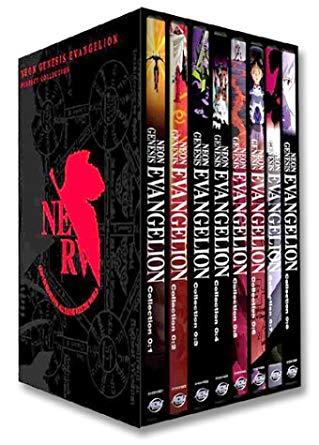
The Netflix dub of NGE, by all measures known to me, is a very well-acted, well-directed, well-translated version of a classic piece of Animation History. I am not telling anyone that it is in any way bad or even inferior to the original, and I am not telling anyone to avoid it.
All I am saying is, that if you, as a translator, have access to references regarding authorial intent you should probably use them.
#netflix evangelion#neon genesis evangelion#shin seiki evangerion#Kaworu Nagisa#Neni Talks#Neni Theory#Lost in Context
100 notes
·
View notes